One of the most enjoyable experiences in researching and writing Becoming the Beach Boys, 1961-1963, was speaking with Judy Bowles, Brian Wilson’s first serious romantic relationship, to whom Brian became engaged to be married Christmas 1962. Judy was engaging, funny, down-to-earth, and full of affection for Brian. Here’s her story.
As Brian finished his first year of classes at El Camino Community College in early May 1961, baseball season in Hawthorne got underway. Cities throughout the South Bay sponsored baseball leagues tailored to specific age groups. Hawthorne’s Middle League, for boys thirteen, fourteen, and fifteen, consisted of the American League and its cross-town rival National League. Brian volunteered as the assistant coach for the American League Pirates, whose manager and head coach was his Hawthorne High buddy Steve Andersen. As the former starting quarterback and student body president, Andersen excelled at leadership. He would later attain the rank of captain in the Army, become an attorney, serve on the Hawthorne City Council, and be elected Hawthorne mayor in the early 1990s. Although Brian was well-liked and respected by the team, Andersen was its clear leader and strategist. The Pirates played a twenty-game season, fielding two contests a week and alternating between Prairie Field and Cordary Field.
Brian’s involvement with the Pirates amounted to a five-month commitment. Tryouts began mid-March 1961 and the season ran May 14 to July 28. Stephen Curtin, then fifteen, pitched for the Pirates and occasionally played third base where Brian coached. “Brian was a really nice guy,” recalled Curtin. “He wasn’t full of himself. He was down-to-earth. You could tell he loved baseball and was a good athlete himself.”
Early in the season, Bill Hollon, one of the Pirates’ best players, suffered a nasty compound fracture sliding into second base. The team rallied around his injury to win the 1961 American Middle League championship. In the team photo, bookended by Andersen and Wilson, Hollon is the player on crutches. An interesting footnote to the photo involves the one player not shown—Bob Levey, the son of legendary jazz drummer Stan Levey. After his parents divorced, Levey moved from Brooklyn, New York, to Hawthorne in the late 1950s. Levey pitched, played third base, and was a strong pinch hitter. “Brian was a fabulous guy,” Levey recalled. “Just a real good person. He was always out there cracking jokes.”
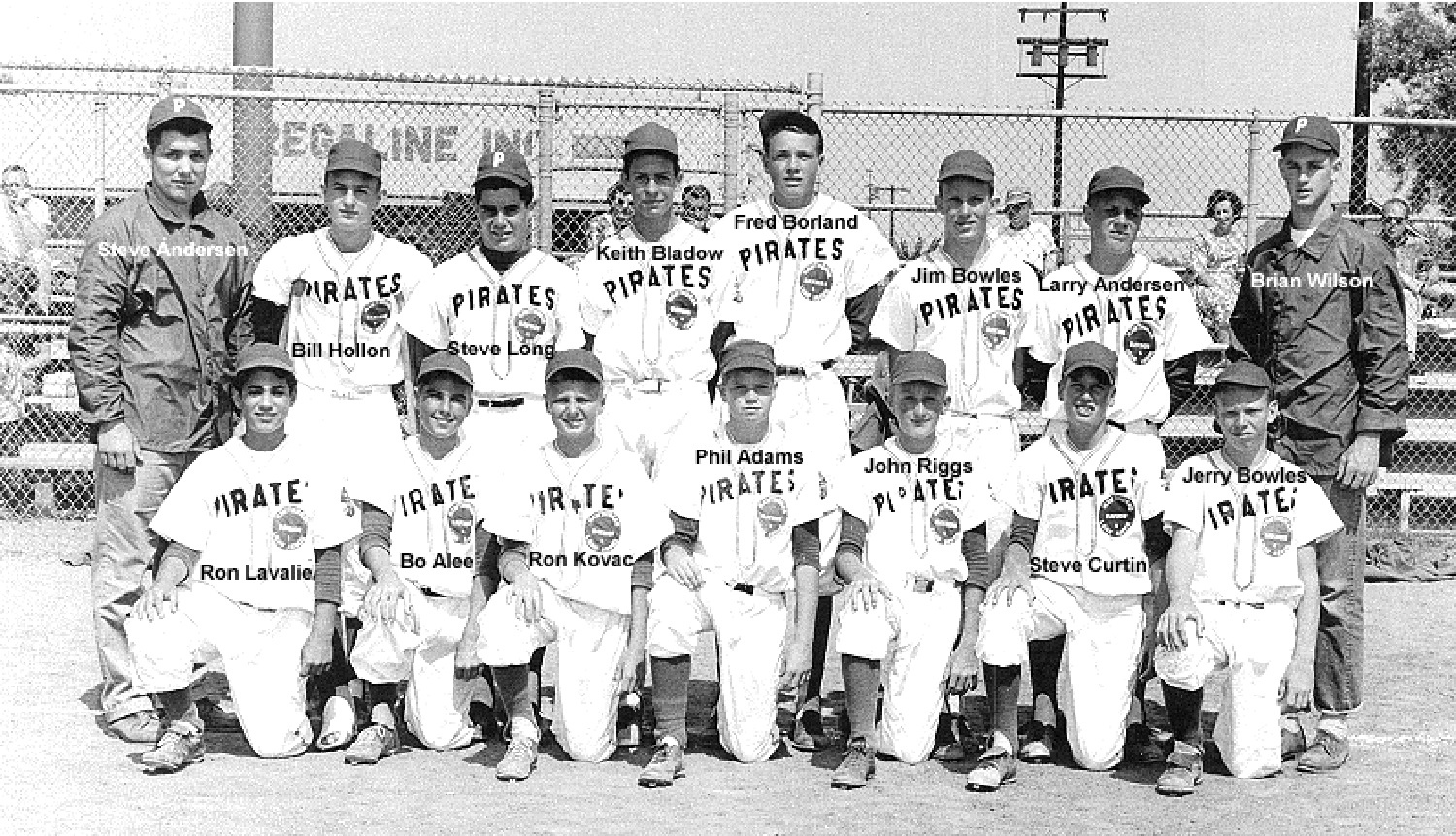
Two brothers on the team would have a direct impact on Brian’s personal life and musical career. Jimmy and Jerry Bowles, fifteen and fourteen, were good athletes and their mother and stepfather attended all their games. Tagging along was their sister, Jerry’s fraternal twin, Judy. She was pretty and petite, with short blonde hair, big brown eyes, and a lovely smile.
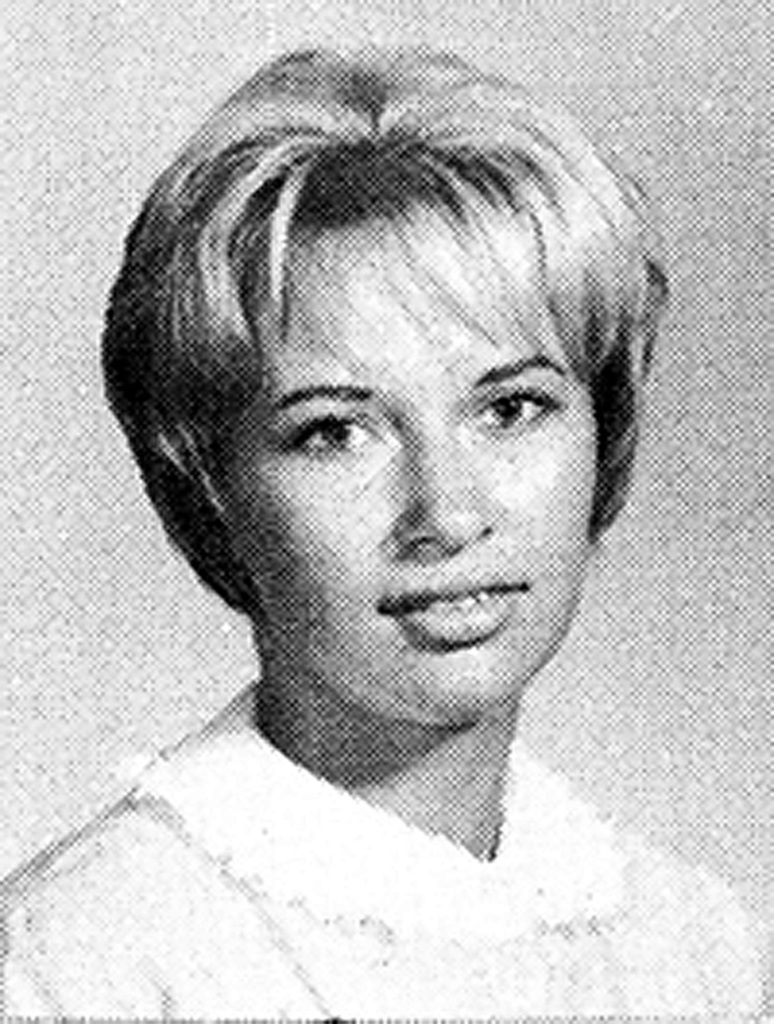
Judy had a happy childhood and, with two brothers, became a good athlete and a bit of a tomboy. As a surfer with her own board, she spent a lot of time at the beach. “In summer 1961, there was a fair in Hawthorne,” she recalled. “I was there with my parents and Brian was about four feet away from us. He attempted a few times to come over to talk with me, but didn’t because of my parents.”
A short time later, Judy was at a Pirates game when Brian spied her in the grandstands and fell in love. “He was real bold,” Judy remembered. “He wanted to kiss me right away.” Curtin recalled a running gag in which team manager Andersen, knowing Brian was in the stands with Judy, bellowed, “Has anyone seen Brian? Brian, get your ass down here and your head in the game.”
Brian started visiting Judy at her house and was well-liked by her parents. He was a little bit older than Judy, but it wasn’t an issue back then. Judy didn’t have much money for new clothes so he bought her gifts, including a new pair of red shoes and cinnamon nylons. Intent on having their mothers meet, Brian dragged his mother Audree over one night before she could change out of her house dress and pink slippers. According to Judy, “If he had an idea to do something, he did it.”
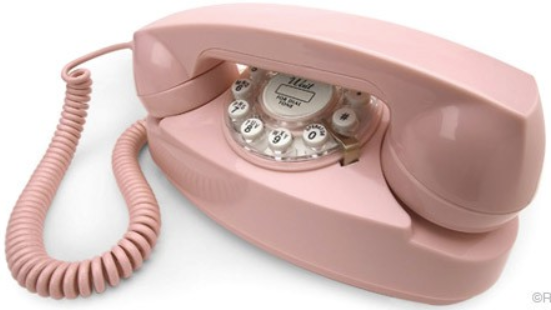
Brian and Judy became inseparable. Most nights he’d pick her up in his 1957 Ford Fairlane and drive to a coffee shop in Inglewood where they talked over Brian’s favorite meal—a sirloin steak, baked potato with butter, and a salad with Thousand Island dressing. Sometimes they cruised to the A&W for cherry cokes and fries. After their dates, having told her he would call, she would pick up the phone real fast so as not to wake her sleeping parents. After Brian received his first royalty check from Capitol Records, he asked Judy’s mom if he could pay for a phone in Judy’s bedroom. She agreed and the telephone company came and installed a pink Princess telephone.
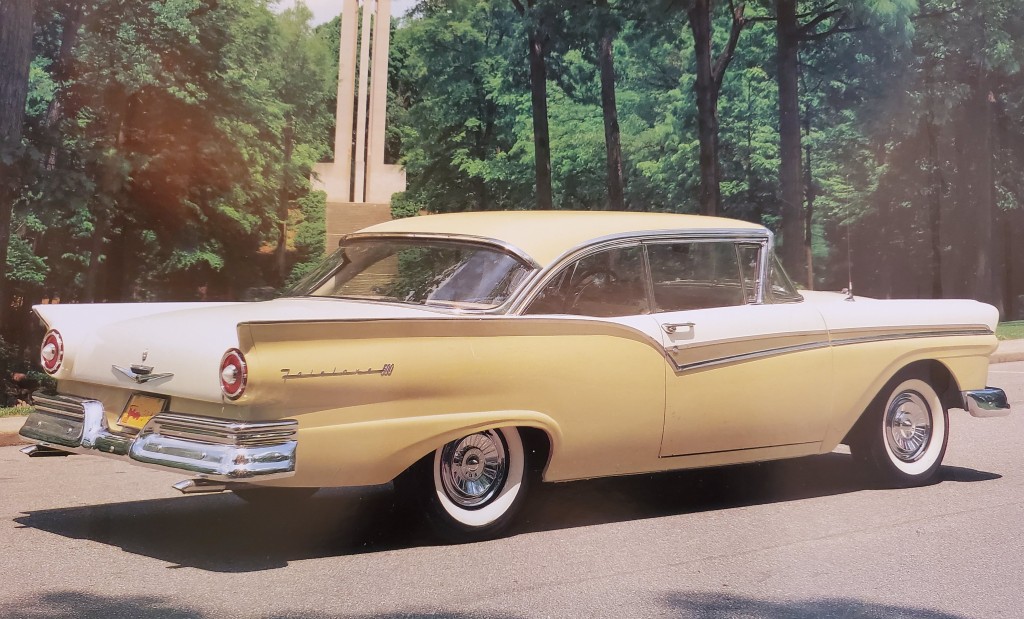
“He was a fun guy to be with,” Judy recalled. “He’d make you laugh so hard. Just giggle for hours on end once he got on a roll. He could have been a stand-up comedian. He was so smart and witty. Totally out of the box and so much energy. He was just enjoying life. He’d act on any instinct he had.”
As their relationship progressed, Brian began to witness things about Judy’s mother that troubled him. “Brian started to not like my mother so much. She was something else. He couldn’t feel any sense of family. One time, my parents weren’t home and Brian wanted to take me out. So we got in his car and went to leave. And we saw them coming home and we waved at them. And my mom said, ‘Get back here!’ So I went back and she said, ‘What is it you think you’re doing leaving without permission?’ And she slapped me across the face because the dishes weren’t done.” Judy retreated to her room and Brian left. Her mother called Brian later and he returned. He told Judy, “I cannot believe she slapped you in front of me.” Although he was angry about such harsh discipline, Brian never discussed his own home life. “He didn’t speak a lot about his father. I think he kept that hidden. I remember Murry was a volatile guy. He would get real mad, real quick.”
Judy recalled another incident that elicited Brian’s empathy. Judy bleached her hair blonde and her mom went “ballistic,” took her to the beauty salon, and had them dye her hair dark brown. “It was very traumatic. I ran home, burst into tears, ran into my bedroom, and called Brian. I asked him not to look at me when he picked me up the next day and to bring black flowers.” Not finding black, he bought her dark red roses. As she slid into the passenger seat he handed her the flowers and drove a few blocks keeping his head turned away. When he finally looked at her he told her “it didn’t look that bad.”
In fall 1961, while Brian began his second year at El Camino Community College and Al Jardine transferred to the community college from Ferris Institute in Big Rapids, Michigan, they reconnected and Al soon began going over to Brian’s house to sing with Brian, Carl, Mike, and Dennis. “Brian wrote a couple of songs about a girl he was going with,” Al recalled. “One was called ‘Judy’ and one was called ‘Surfer Girl.’”
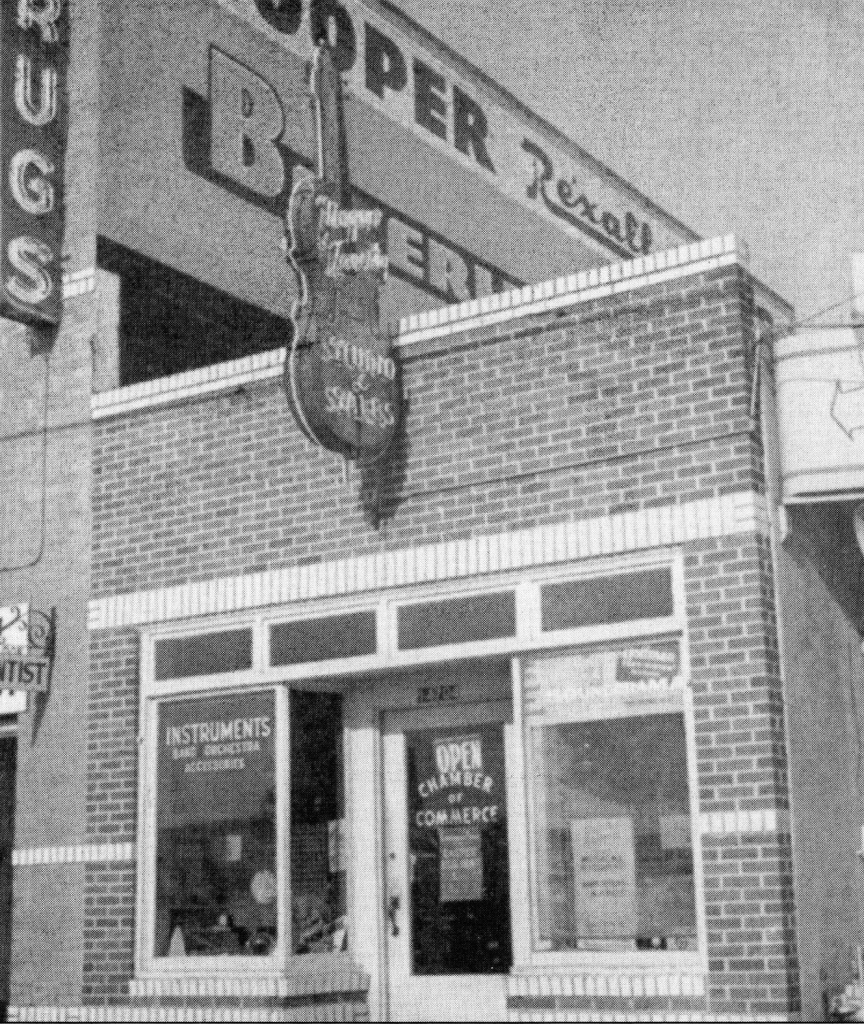
Brian and Judy dated throughout the time the fledgling Beach Boys formed and she spent a lot of time at Brian’s house, including the time the guys rented musical gear from Hogan’s House of Music while Audree and Murry Wilson were in Mexico City. “Audree and Murry were away and the boys had a jam session in their den,” Judy recalled. “They had a party and maybe ten or so people from the neighborhood were over. Everyone was having fun and laughing and then Carl piped up and said, ‘Hi Mom’ and everything stopped. But he was only kidding. They played ‘Surfin’’ over and over. It was the only song they played. I met Al at that session. He had kind of a quirky smile like Brian.”
In late October 1961, as Judy turned fifteen, Brian finally agreed to let her drive his car. He coached her around an empty parking lot, but when she ventured tentatively onto busy Imperial Highway, they were stopped three blocks later by the police and ticketed. Another time, while Brian was driving, a cop pulled them over, asked for Brian’s license, and demanded his can of Coke to check for the smell of alcohol. “Brian was livid for being treated that way,” Judy recalled. When they cruised around, Brian often worked on new songs. “I joined in once and he leaned over to listen to me as we sang and said, ‘That’s incredible! How can you know the words when I just wrote the song last night?’ I just shrugged. I don’t know if the lyrics were so simple you could just guess them or what?”
When “Surfin’” was released November 27, 1961, on Candix 331, it was not as by The Pendletones, which the band had called themselves, or The Surfers, the name producer Hite Morgan favored, but rather the Beach Boys. The name was suggested by Russ Regan, a record promoter at Buckeye Record Distributors who handled the Candix account. Judy Bowles recalled Brian was not pleased with the new name. “He wanted to be called the Pendletones with the plaid shirts. He was mad because now they were the Beach Boys because some public relations guy named them that and they had to go with it.”
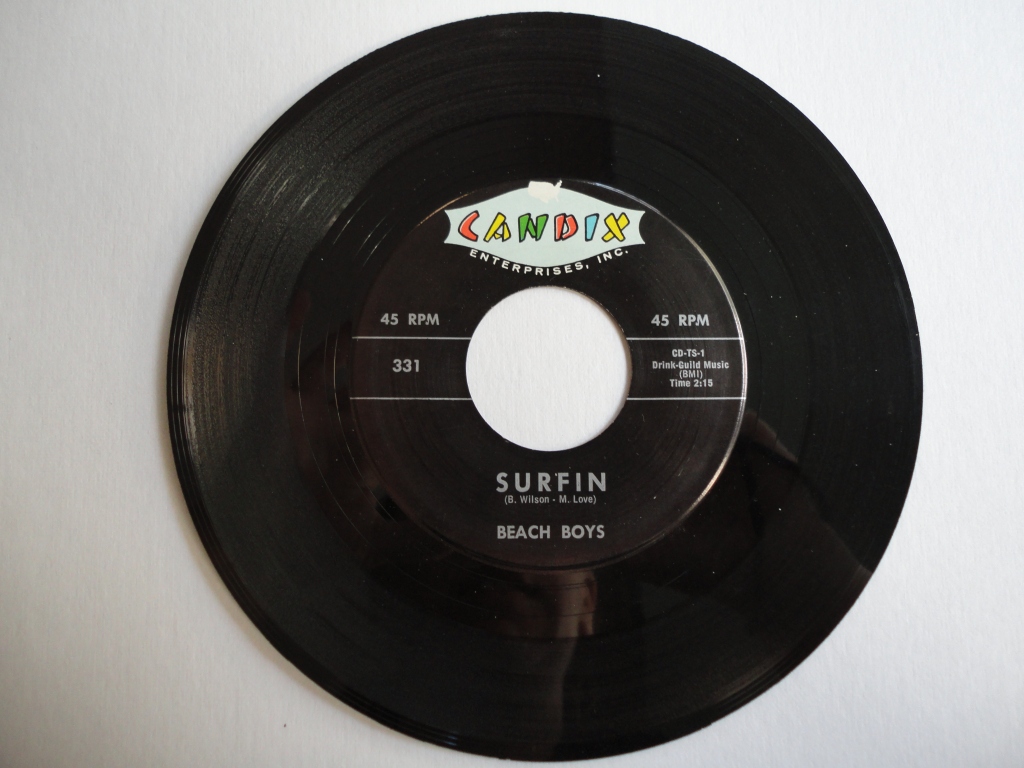
Judy recalled how “Surfin’” competed in the “Best of the Batch,” a weekly radio contest each Saturday on KDAY in which listeners voted for their favorite song. “My whole family, my dad, mom, Jim, and Jerry, we must have voted thirty times,” Judy recalled. “My mother showed Brian the telephone bill with all the calls to the radio station. It won the contest and for a week they played it every hour. I took my radio to school and I heard it so many times.”
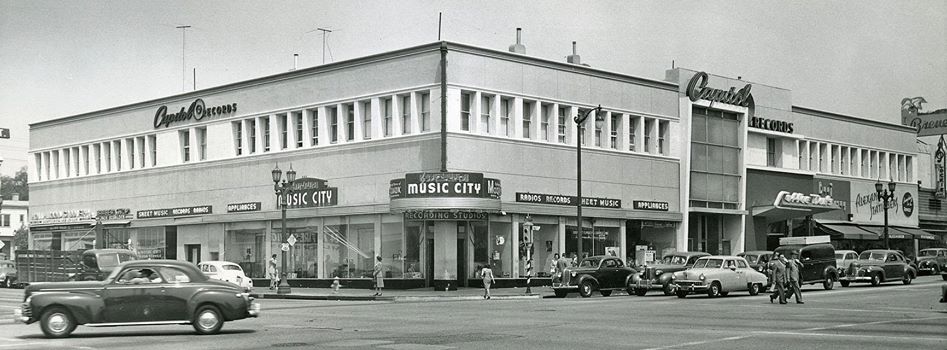
Judy recalled, “I remember Brian taking me to Wallich’s Music City on Sunset Boulevard. They had small booths and you could listen to a record before buying it. I remember someone told Brian that Melody Music on Hawthorne Boulevard refused to carry ‘Surfin’’ because it was ‘only a one-hit wonder.’ Brian grimaced and, I believe, told himself he was not going to be a one-hit wonder.”
As inseparable as Brian and Judy were, she still enjoyed the attention of other boys and, if a boy she liked asked her out, she’d go out with him. Invariably, Brian found out and became upset and jealous. Another guy once took Judy for an ice cream sundae and accompanied her back home. “When we got to my house, Brian was there and he was not very happy.” She added, “The first Beach Boys concert I attended was at a local high school. They didn’t have much of a repertoire. They only knew about three songs. They played them and then they had to leave. Audree and Murry were there. A guy asked me to dance and I danced with him. Brian wasn’t too happy, but I wanted to dance.”
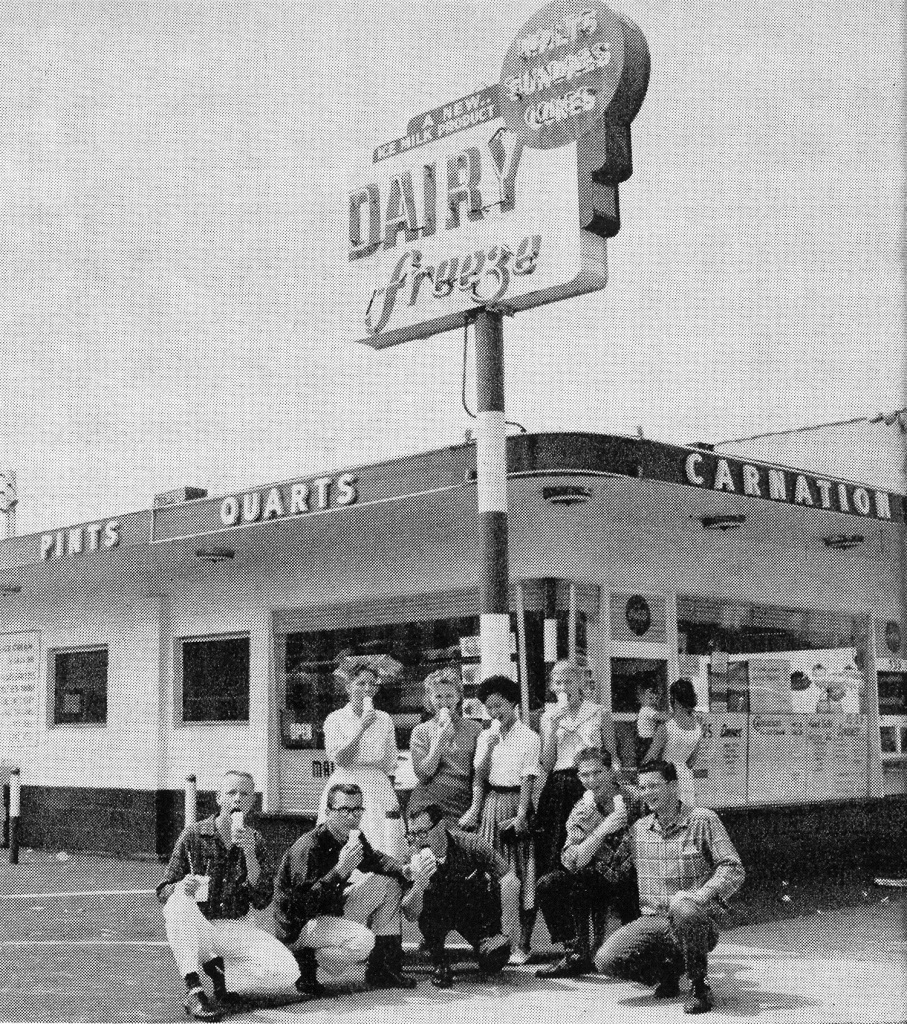
Judy recalled that while they were dating Brian kept in touch with a girl he had known, and perhaps dated occasionally, in high school. “One day he came over to the house and he had bleached hair. In the front it was kind of red or orange. I asked, ‘What did you do?’ And he said he went over to her house and she bleached his hair. He always went back to her for a visit. I was real jealous.”
In his memoir I Am Brian Wilson, Brian recalled Judy dancing with Mike Love at the Rendezvous Ballroom and worrying she might have had a crush on his brother Dennis. While these uncertainties made for a roller coaster relationship, it was fertile material for a young songwriter.
In mid-January 1962, Brian met singer-songwriter Gary Usher and they began writing songs together, including “Lonely Sea,” a love song that used a metaphor of the sea with its mysterious depths and endless swells to conjure up a complicated relationship. “What most people don’t know is that Gary wrote the music including the guitar intro to ‘Lonely Sea,’” recalled David Marks. “Brian helped with the melody, but his main contribution was the great lyrics. Carl and I helped them work out the arrangements on our guitars.” The spoken bridge, which some believe ruins the song by devolving into teenage melodrama, may reveal Brian’s feelings about his relationship with Judy (“This pain in my heart / These tears in my eyes / Please tell the truth / You’re like the lonely sea”).
On February 8, 1962, Hite and Dorinda Morgan produced a session for the Beach Boys at World Pacific Studio at 8715 West Third Street in LA to record the follow-up to “Surfin.” The band had rehearsed four new songs—“Surfin’ Safari,” “Surfer Girl,” “Judy,” and “Beach Boys Stomp” (aka “Karate”).
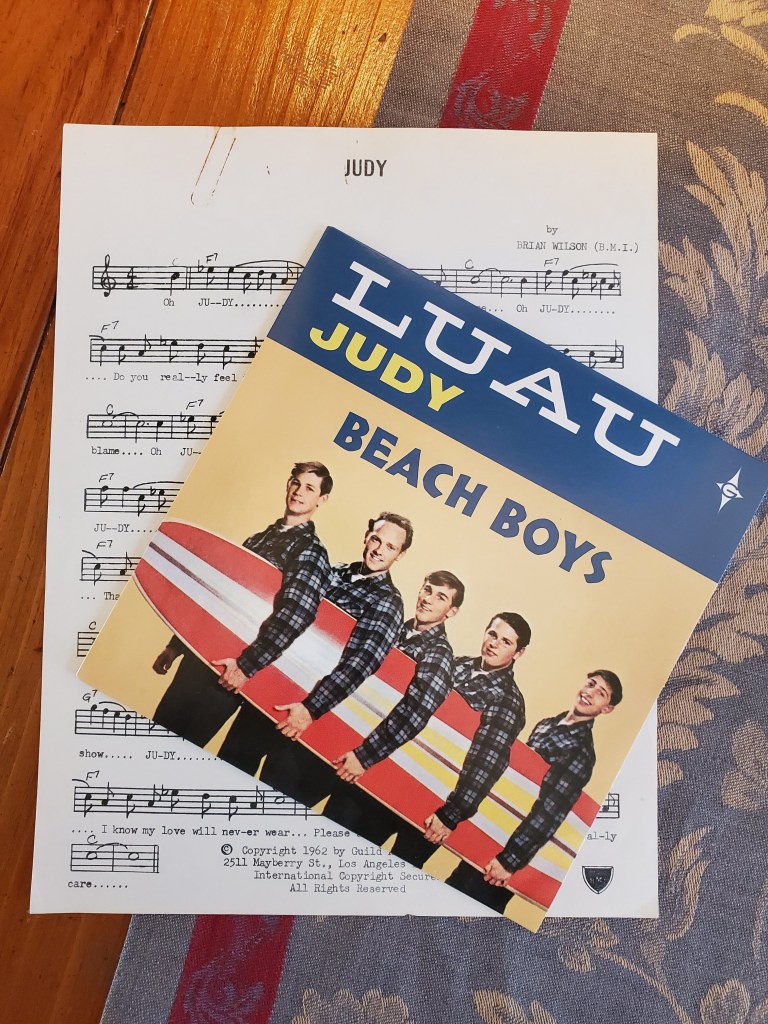
“Judy” offers a glimpse into their relationship as Brian questions whether Judy returns his affections and suggests she “take the blame.” Judy recalled the incident behind the lyrics. “I went to the beach with another guy. When Brian found out he was upset and angry.”
Brian’s insistence that “Surfer Girl” was his first song puzzled his closest high school friends who recalled his earlier compositions. It is unclear if any of those songs are extant. If “Surfer Girl” was indeed written first, then it precluded “Surfin’” as the group’s entry into surf music. Perhaps Brian bestowed such import on “Surfer Girl” because it was the first song for which he wrote both melody and lyrics, or simply because it holds a special place in his heart.
Another mystery about “Surfer Girl” concerns its inspiration. “At the time, I thought ‘Surfer Girl’ was written about me,” recalled Judy Bowles. “But I’ve read what Brian said in his book [ed. note: Wouldn’t It Be Nice, My Own Story] that he didn’t write it with anyone in mind. I remember my girlfriend, Diana, she was real little, she begged Brian, literally begged him, if she could be the ‘little one’ at the end of the song. And Brian kind of laughed and said okay.”
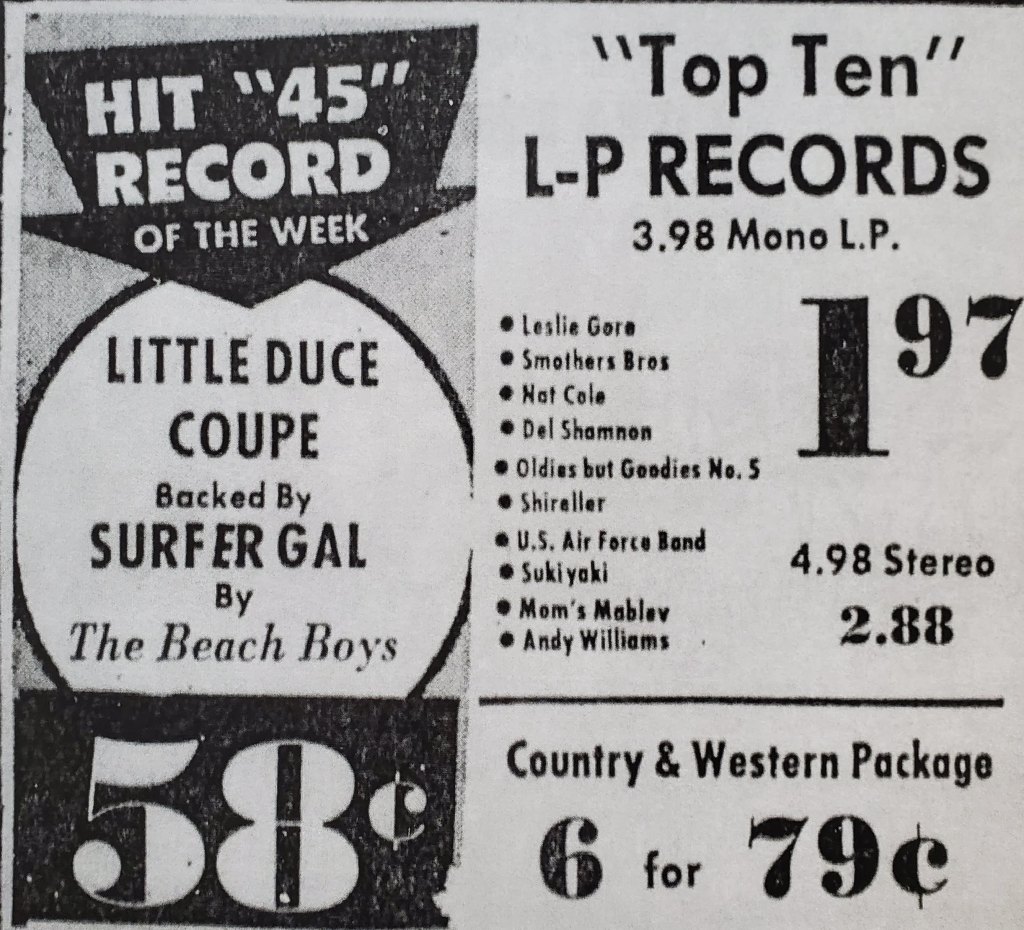
In 1964, Brian said, “‘Surfer Girl,’ a hit for us and a song I’m proud of, was directly inspired by a girl I was dating at the time.” And Mike, when asked if the inspiration for “Surfer Girl” was more mythical than real, responded, “No, she was definitely the existing person. Her name is Judy and she lived somewhere near Brian’s house. We just started doing records then and it was one of the first songs he wrote.” When Mike, Al, and Carl appeared on Today March 19, 1979, Mike told host Jane Pauley that Brian wrote “Surfer Girl” for Judy while driving to his orthodontist.
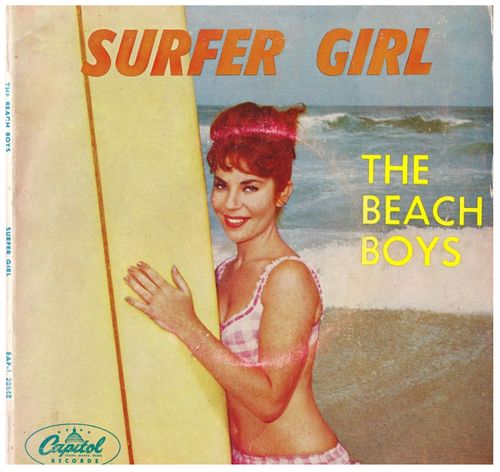
During one of the campfire sequences for the Endless Summer television show in 1989, Mike asked Brian, “So, let’s hear the story of the original surfer girl, Judy Bowles.” Brian responded, “No, she was not ‘Surfer Girl.’ There is no ‘Surfer Girl.’” Mike countered, “You told me a long time ago it was her.” After some bantering and laughter, Brian admitted, “Oh, I know which girl you’re talking about. Yeah, it was about her.” Judy was Brian’s first serious girlfriend and they dated for two and one-half years. It’s unlikely he would have forgotten her.
While the sentiment in “Surfer Girl” was inspired by Judy, the melody owed a debt to “When You Wish Upon a Star,” the 1940 Oscar winner for Best Original Song from Pinocchio. Brian may have been familiar with versions by Glenn Miller, Guy Lombardo, Rosemary Clooney, and Eddie Fischer. As a child, it was the first song he sang in front of his family. He also may have been familiar with versions by Joni James (April 1955), Little Anthony and the Imperials (January 1959), and the version re-popularized by Dion and the Belmonts in April 1960 during Brian’s senior year at Hawthorne High.
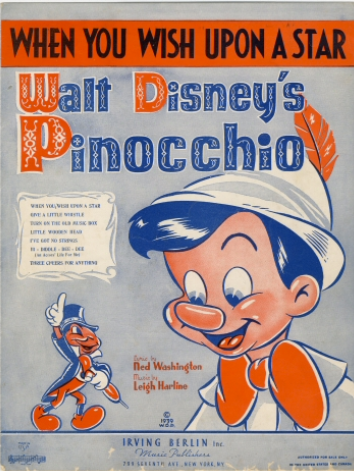
So perhaps Brian was driving around Hawthorne one day and Dion’s “When You Wish Upon a Star” came on the radio and he began humming the melody. And his thoughts turned to Judy, the girl he loved, and the image of her sitting atop a surfboard, rising and rolling under each warm wave, beckoning to him along the shore. Blonde, suntanned, and eternally beautiful. Could he make her dreams come true? And did she love him as much as he loved her?
By summer 1962, Brian and Judy had been dating for a year. “He was your normal, healthy American guy,” Judy recalled. “He just had a lot of energy. A lot of energy. It was like a discovery. We were treading unknown waters.” Like many young couples, they sought a place where they could be together without being discovered. With their homes off limits, that sanctuary was Brian’s new 1960 red Chevy Impala. And perhaps the best place to park for several hours at night without raising suspicion was the drive-in, a popular Friday or Saturday night destination, although they didn’t always get to see the movie. In spring 1964, Brian immortalized the youthful appeal of outdoor theaters in “Drive In,” in which he recalled the danger of attendants dressed in white scouring the parking lot for couples in the throes of passion.
“Brian was the athletic, collegiate type,” Judy continued. “He never drank or smoked. He had a butch haircut, practically shaved it was so short. In those days that was the clean cut collegiate haircut. He gave me a picture of himself which I had on my vanity for years. He had written on the picture, ‘To Judy, love forever, Brian.’” She added, somewhat wistfully, “I don’t know what happened to that.”
“I started smoking in my junior year,” Judy recalled. “I had one cigarette in the morning before school. When Brian picked me up he would kiss me and tell me he could still smell the cigarette on my breath. He was disappointed in me.”
After signing with Capitol Records and watching “Surfin’ Safari” hit #1 on KFWB in LA and #14 nationally, the Beach Boys’ career began to soar and the pressures on Brian mounted. “I went to Pandora’s Box a lot,” Judy recalled. “That was one of the first steady gigs they had. But it was an unpleasant experience for me.” Gary Usher invited Ginger Blake, his girlfriend and label mate on Titan Records, to see the Beach Boys perform one night at Pandora’s Box, a coffee house and live music venue at 8118 Sunset Boulevard on an island in the middle of an intersection diagonal from the legendary Schwab’s Pharmacy. Ginger invited her cousins Marilyn and Diane Rovell to come along. Brian spotted Gary and the Rovell sisters in the audience and during a break between sets joined them at their table. Brian famously spilled Marilyn’s mug of hot chocolate. But in that awkward innocence a new romance bloomed. Judy realized that when Brian became attracted to Marilyn, she was on the way out. Marilyn and Diane had a younger sister and Brian started going over to the Rovell home. One day he told Judy, “All I wanted was a family.” Judy recalled “That was the reason he went over there. They welcomed him with open arms.”
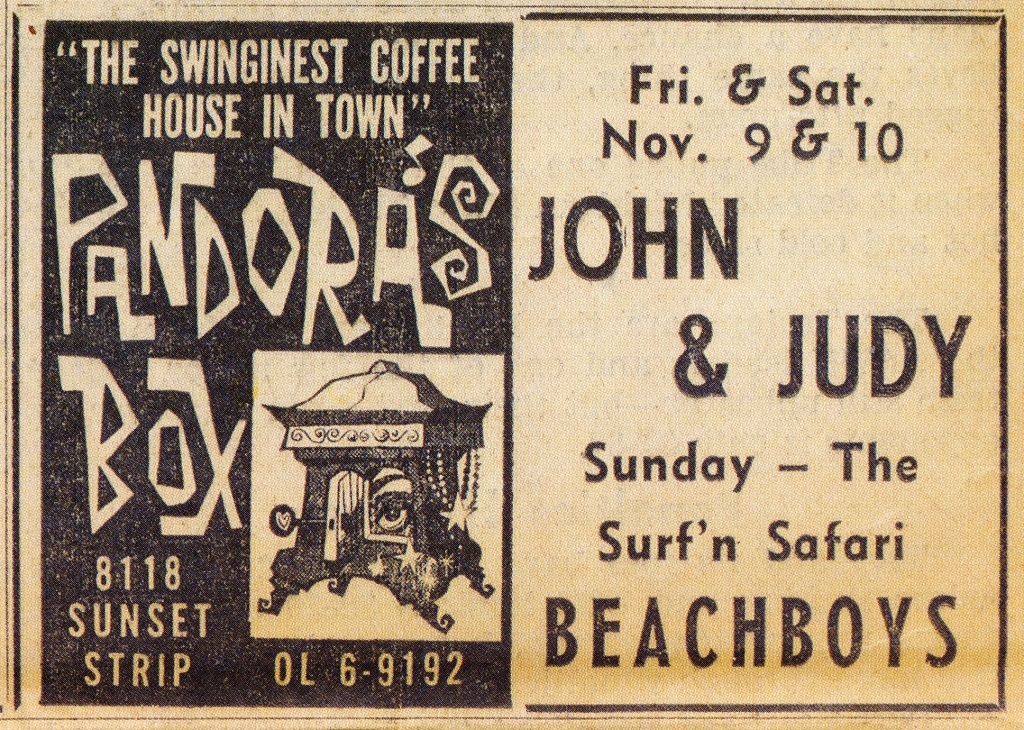
By late September 1962, with the line-up finalized, the Beach Boys first studio album, Surfin’ Safari, was being prepared for release—mastering, metal works produced, and album jackets printed. Brian took Judy to see the album being pressed at Capitol’s Los Angeles plant at 2121 North San Fernando Road. “I remember he was so excited to see the albums being made. And the little holes being punched out in the middle.”
December, with Christmas, and Dennis’s and Carl’s birthdays, was always a busy month in the Wilson home. In 1961, the Yuletide excitement had been the debut of “Surfin’” at #33 on the KFWB chart out December 22. In 1962, in addition to their chart success with “Surfin’ Safari,” “409,” and Surfin’ Safari, it was Brian’s plan to propose to Judy. He asked Audree to accompany him to Zales Jewelry Store where they purchased a diamond engagement ring on a payment plan. The ring had a silver band with a round diamond in the center and diamond chips on each side. Audree thought it appropriate for a young girl.
“It was Christmas and we were in his red Impala outside my parents’ house,” Judy recalled. “He was mad that I knew I was getting it and it wasn’t a surprise. He said ‘You know you’re getting this so here, here it is.’ It wasn’t especially romantic. It was like I received something and then felt guilty about it. It wasn’t a big rock, but I was very happy with it. I thought I was the cat’s meow. My mother asked me, ‘Do you really want to marry Brian?’ And I said, ‘Yes, I do.’” Brian and Judy made plans to marry in December 1963. Her mother suggested she attend summer school so she could graduate before getting married.
After the ill-advised “Ten Little Indians,” the follow-up single to “Surfin’ Safari,” the Beach Boys were worried their career in the music business may already be coming to an end. But Brian had an idea for another song that would put them back on the charts. Brian recalled, “I started humming ‘Sweet Little Sixteen.’ And I got fascinated with the fact of doing it. And I thought to myself, ‘God, what about trying to put surf lyrics to the ‘Sweet Little Sixteen’ melody.’ The concept was about ‘They’re doing this in this city, they’re doing that in that city,’ the Chubby Checker ‘Twistin’ U.S.A.’ concept. So I thought of calling it ‘Surfin’ U.S.A.’ I was going with a girl named Judy Bowles at the time and her brother, Jimmy, was a surfer and he knew all the surfing spots. I said to Jimmy, ‘I want to do a song mentioning all the surf spots.’ So he made a list and, by God, he didn’t leave one out.” Brian also may have been inspired by “Kissin’ Time,” Bobby Rydell’s #11 hit from 1959, which also borrowed heavily from “Sweet Little Sixteen.”
Brian took the surfing travelogue provided by Jimmy Bowles and crafted a clever set of lyrics. A demo of Brian singing and playing “Surfin’ U.S.A.” on his upright piano was released on the Good Vibrations box set in 1993. The lyrics underwent very little revision, although waxing replaced sanding as the preferred way to prepare one’s board for a day on the waves.
“Surfin U.S.A.,” backed with “Shut Down,” reached #3 on the Billboard chart. But that summer it was surpassed by another surf song that Brian had begun writing and then gifted to Jan Berry for him to finish and record with Dean Torrence. Judy Bowles recalled, “Brian just threw ‘Surf City’ away. He was so thrilled about working with Jan & Dean. He told me Murry was really mad at him for giving it away. Brian thought it was funny, kind of like a little dig at his dad.”
In early 1963, Brian and Judy were still very much in love and happily engaged, but their lives were beginning to take markedly different paths. Brian was immersed in the ultra-competitive music industry with the pressure of writing and producing albums, and delivering that all-important next hit single. His parents, brothers, cousin, and friends were depending on him. Judy was a high school junior worried about homework. For a writing assignment, she once submitted a poem Brian wrote from a young girl’s perspective. When she received it back, her teacher had written on it ‘Are you sure you wrote this?’ Judy was often asked if she could arrange for the Beach Boys to perform at Lennox High. “I asked Brian and he said, ‘No. Hawthorne High wanted them to perform, but they would not appear for free anymore.’”
This is the full page from the 1963 Lennox High School yearbook, the Troubadour. Judy Bowles, a junior, asked her date, Brian Wilson, to have the Beach Boys perform, but he declined. Also in attendance were Judy’s brothers, Jim and Jerry with their dates.
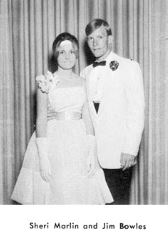
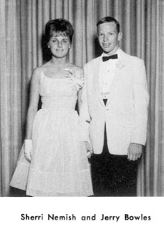

Brian and Judy attended her junior prom at the Riviera Country Club in Pacific Palisades in the Malibu Hills March 15 from 8:00 p.m. to 11:00 p.m. A photograph of them dancing appeared in the Lennox High School’s 1963 Troubadour yearbook. “While we were dancing, he leaned over and pretended to be giving me a hickey. The other guys on the dance floor saw this and imitated him. I had a photograph of the two of us that my mom took. My daughter took it to camp years later and lost it.”

Judy recalled that occasional fights and resultant chaos at some of the band’s shows did little to endear Brian to live performances. “He didn’t like it. And Murry was always saying, ‘Smile, smile!’ It was a drag for him. He just wasn’t the type of person who wanted to perform. Murry didn’t want Brian to take me to their concerts. He wanted the group to go together and Brian didn’t like that. Brian always wanted to stop and have something to eat, and was always late getting to the concert. It was like he didn’t want to go. Once he stopped for an ice cream cone and some guy said, ‘Hey, is that your car over there?’ Do you want to go for a drag?’ And Brian said, ‘Oh gee, I’d like to, but I can’t. I have to go to a concert.’ The guy recognized him and knew who he was.”
Judy accompanied Brian to an evening concert where the Beach Boys shared the bill with many top-name acts that was most likely the Show of Stars at the former LA Sports Arena on August 31, 1963. She was grounded that night, but Brian persuaded her parents to let her go. At the venue, an older girl approached Brian in a friendly manner and it was apparent he had invited her. During the car ride home that evening, Brian and Judy argued, and she asked him to stop the car. She got out, slammed the door, and walked the rest of the way home. “That was part of the breaking up cycle,” she recalled. “We were growing apart and he was moving on. We started getting used to each other and not respecting each other. He was spending more time with musicians and in Los Angeles. I probably wouldn’t have lasted much longer. He had his path in life and I had mine. It was very hard, very emotional, like a see-saw. He never asked for the diamond ring back. I pawned it two years later in Hollywood for fifty dollars.”
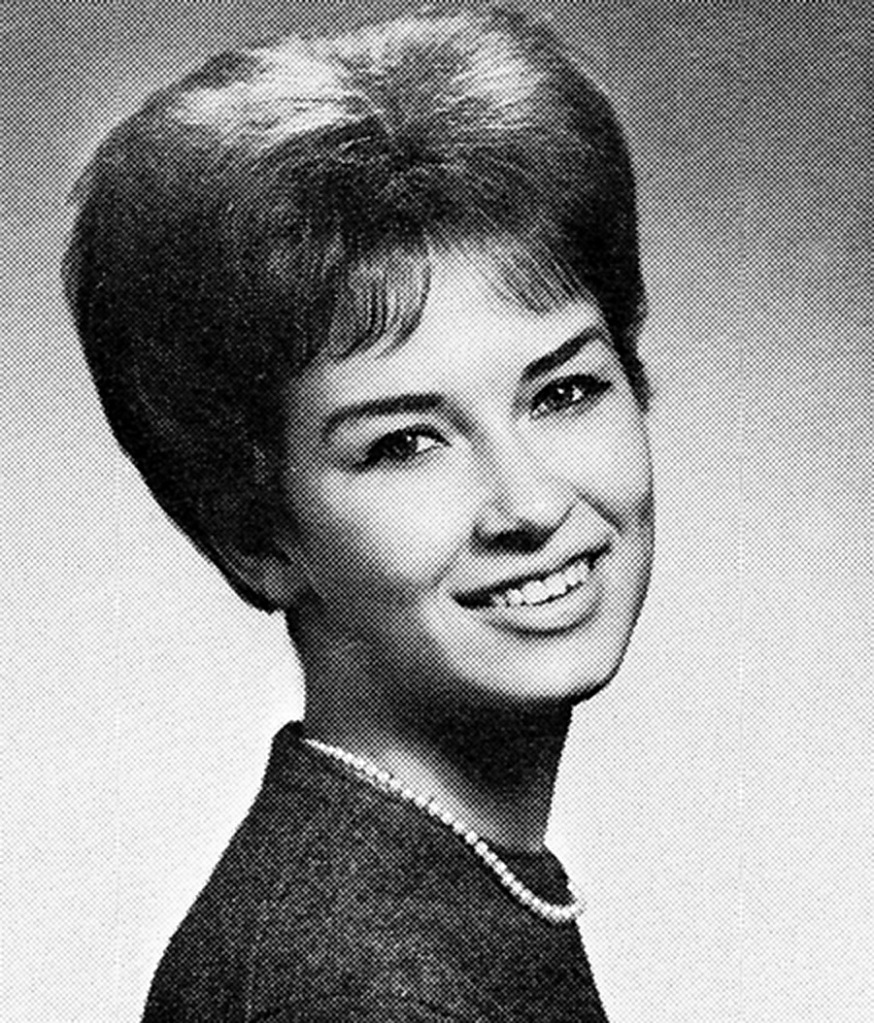
That October, as she turned seventeen, Judy worked as an usher at the Fox Theatre in Inglewood. “Brian came in to see me and we talked. He asked, ‘What’s going on? How have you been?’ My hair was frizzy from a bad home perm and he said, ‘How could you do that to yourself after being with me?’ I said, ‘Well, at least I lost weight!’ And he looked me up and down and said, ‘Yes, you did. No more steak dinners and baked potatoes!’ Then the manager of the theater told him ‘You have to leave right now.’ He was so mad at the manager for making him leave, he just walked out. That was the last time I saw him.”
“During the time we were breaking up, Brian once grabbed a pen and paper, and started writing furiously,” Judy continued. “He wrote me a letter and read it back to me. I think he was looking into the future because he was flushed and exhausted when he finished. He said I would have several men in my life, but no one like Brian Wilson.”
“It’s funny,” she added, somewhat wistfully, “but that turned out to be true.”
On November 22, 1963, the world mourned the assassination of President John Fitzgerald Kennedy. The Beach Boys were scheduled to play a concert that evening in the Marysville Memorial Auditorium in Marysville, California. Murry Wilson called Fred Vail, the show’s promoter, expecting Vail would advise canceling their appearance. Instead, Vail checked first with the venue and the radio stations in the Marysville and Sacramento area. Despite the tragedy, the consensus was the community needed something spiritually uplifting and that the show should indeed proceed.
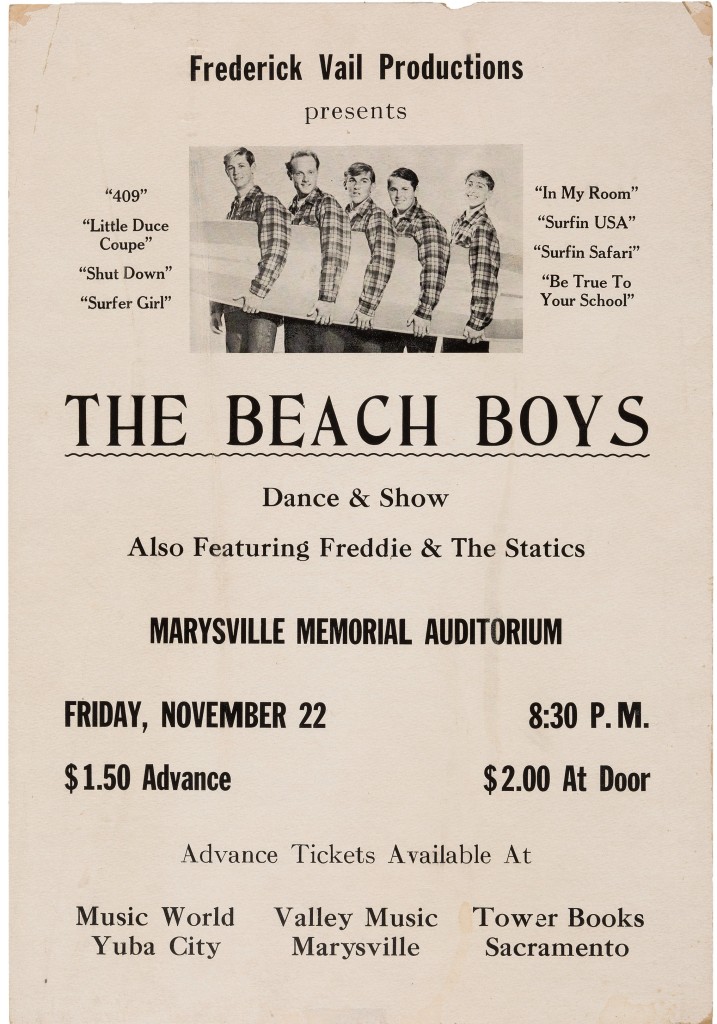
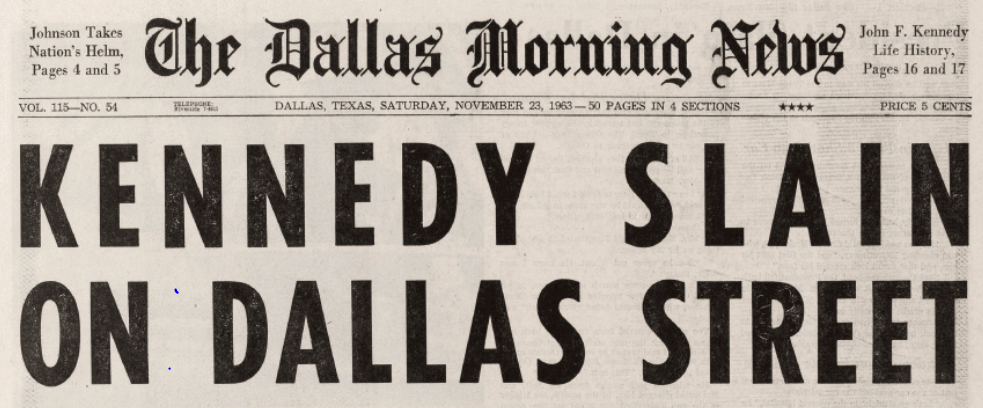
The Beach Boys flew into Sacramento that afternoon and played the concert. Prior to the start of the show, Vail addressed the solemn audience and asked for a moment of silence for the fallen president. Then the Beach Boys entertained an audience in need of escaping, if even for an hour or two, the grim reality of the news. Later that evening, back at their hotel, Brian and Mike began writing “The Warmth of the Sun.” In the intervening fifty-seven years, the song has become associated with the assassination largely through interviews in which Mike Love has described a mystical and almost prescient aura about the lyrics. Often the most moving and memorable lyrics are not written ‘on the nose,’ describing the inspiring event in detail. “The Warmth of the Sun” lyrics do not correlate directly with the assassination. However, the words seem especially poignant in light of Judy’s recent break-up with Brian (“The love of my life / she left me one day / I cried when she said / I don’t feel the same way”). Jodi Gable, the first president of the Beach Boys fan club, noted, “We wouldn’t have had ‘The Warmth of the Sun’ if Judy hadn’t broken up with Brian. She said she didn’t love him anymore. Maybe she was just growing up or didn’t want to be around a musician.”
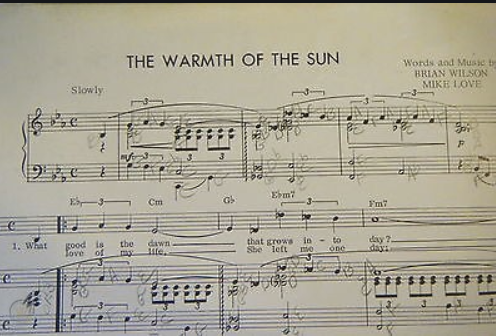
Perhaps the song was inspired by both Brian’s and Judy’s romantic relationship, and the tragedy in Dallas. The instrumental track was recorded at Western January 1, 1964, and the vocals at Gold Star a week later. “The Warmth of the Sun” appeared on Shut Down Volume 2 released March 2 and the B side of “Dance, Dance, Dance” that October. It remains one of the Brian’s and Mike’s most personal and deeply moving songs. It is sad, but comforting. Desolate, yet hopeful. A reflection on love, once so beautiful, now lost forever. It transcends the gloom through its sheer beauty. And, as a meditation on that tragic time in our history, a musical salve for the wound inflicted on the American psyche by the death of our young president and the loss of so much promise.
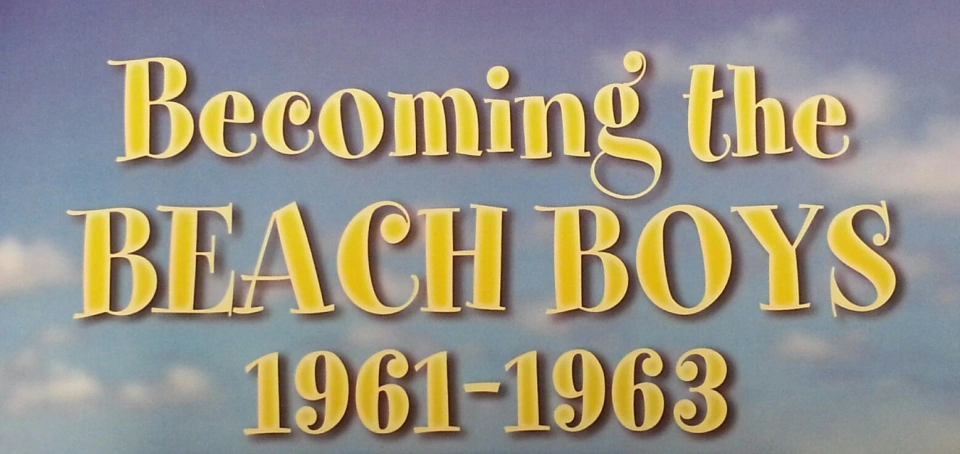
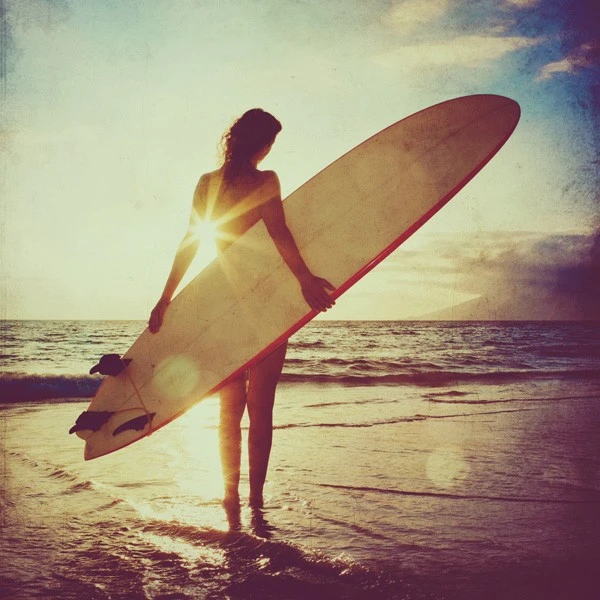
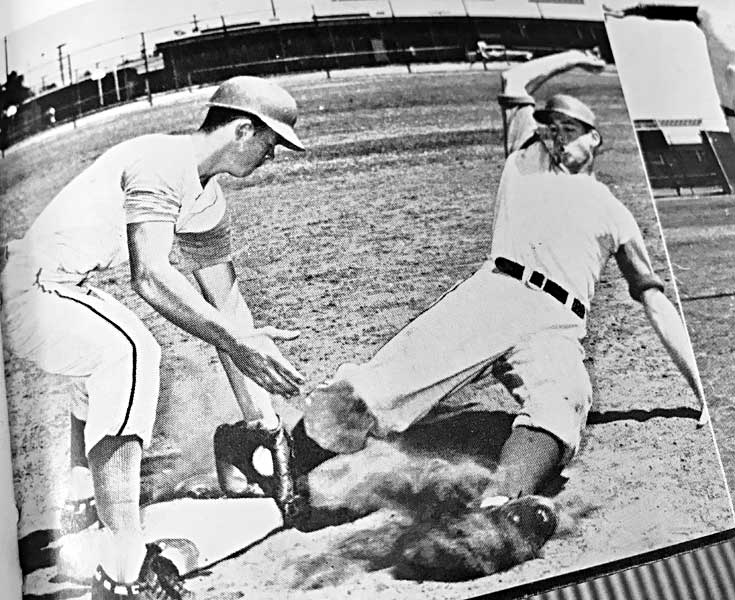
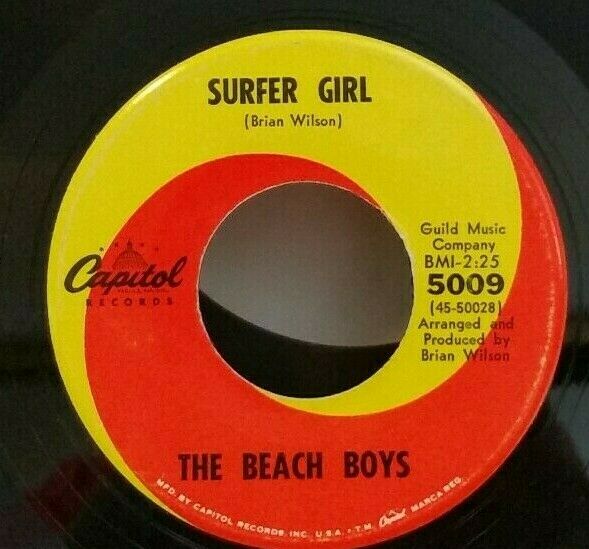
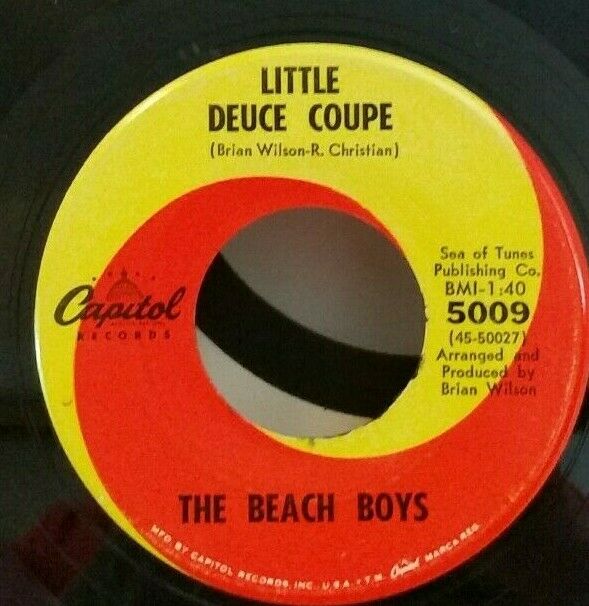
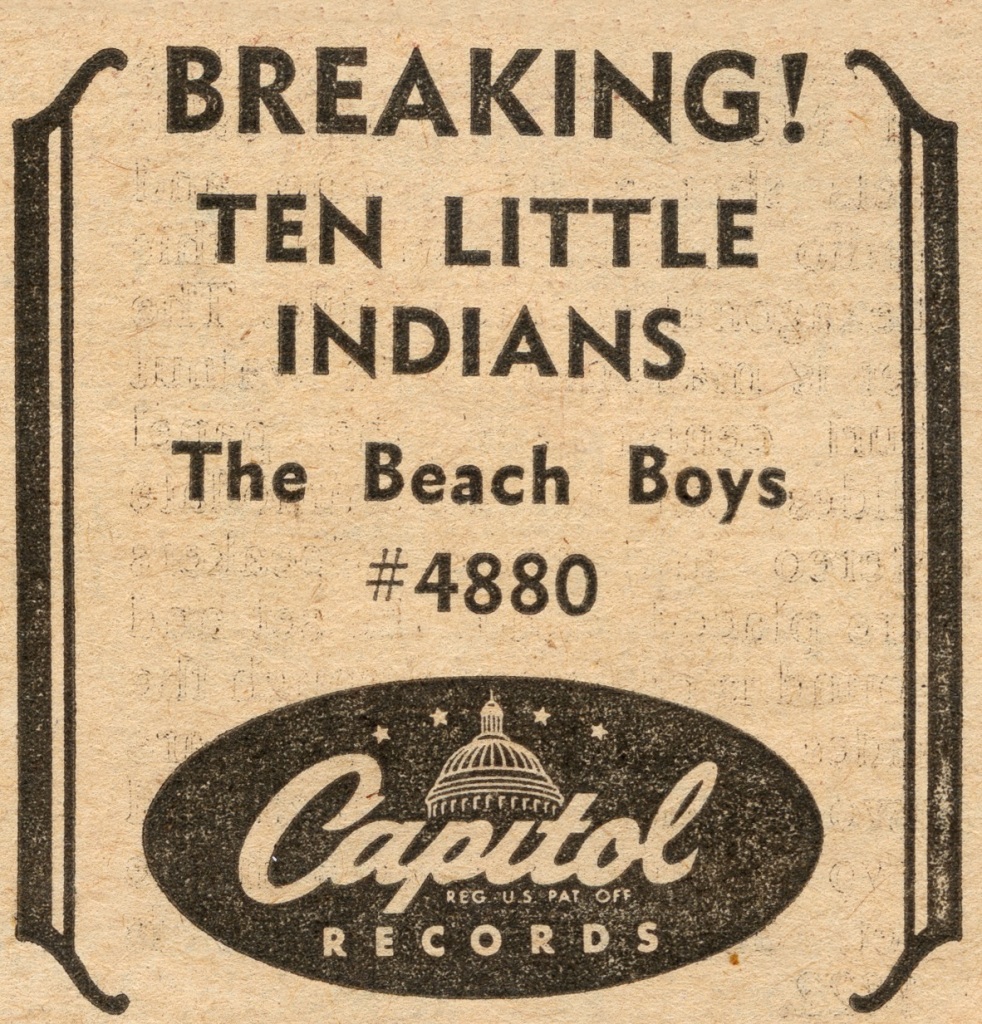
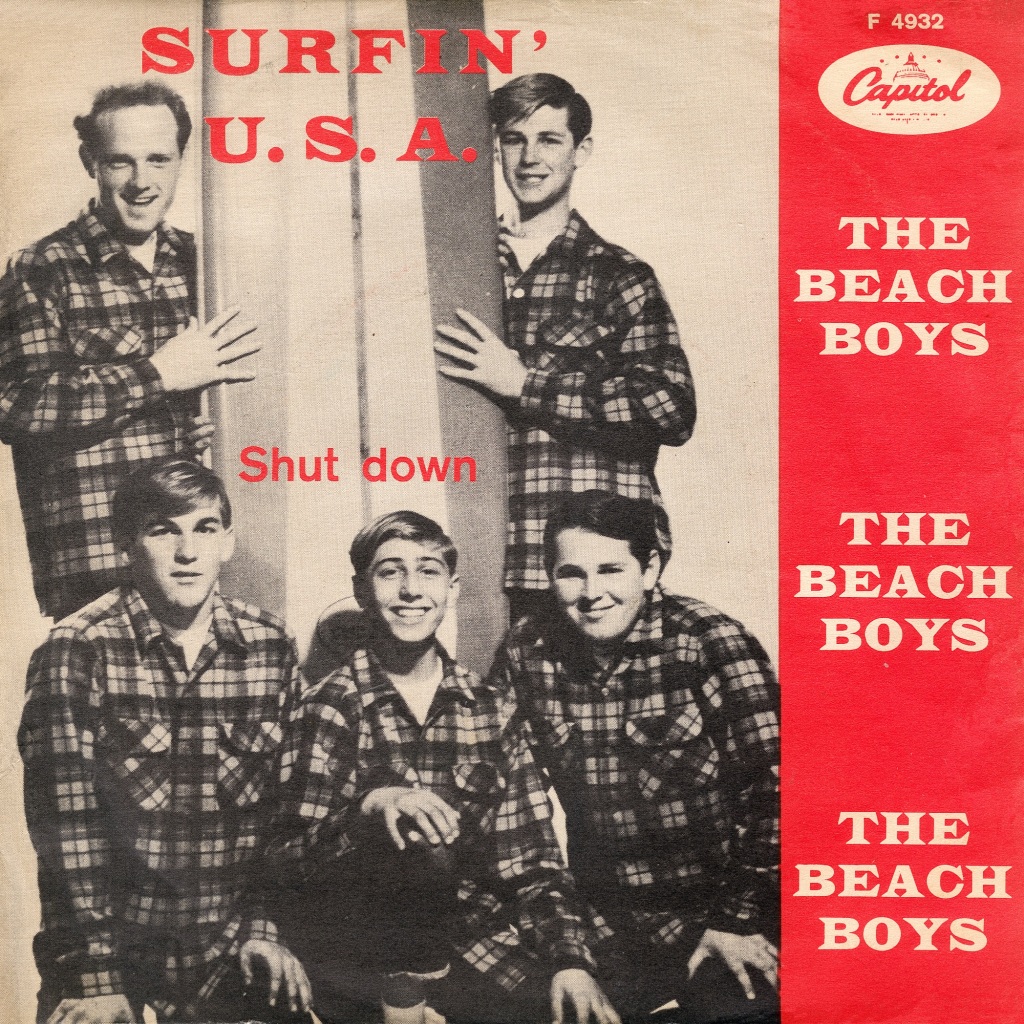
Pingback: Do You Love Me, Do You Surfer Girl? — Becoming the Beach Boys – a reader’s companion to the book | Mon site officiel / My official website
Thank you for this, what an in-depth and informative piece. Mike’s story about how the song was written apparently has wavered over the years—I have a copy of a 1997 radio show where he says he thinks Brian wrote it while driving to El Camino College.
LikeLike
Your readers might enjoy our podcast conversation about the then new release of your book.
https://prayforsurfblog.blogspot.com/2015/08/pray-for-surf-interview-with-jim-murphy.html?m=0
LikeLike
The best ever long live those Cali boys.
LikeLike
Thank you for this, Jim! This is a wonderful piece. You have a real gift for taking all of the relevant factoids and dates (amazing research, as always) and bringing them all to life in a very readable and very human story. That’s a rare talent!
LikeLike
What a wonderful story. Beautifully researched and told.
LikeLike